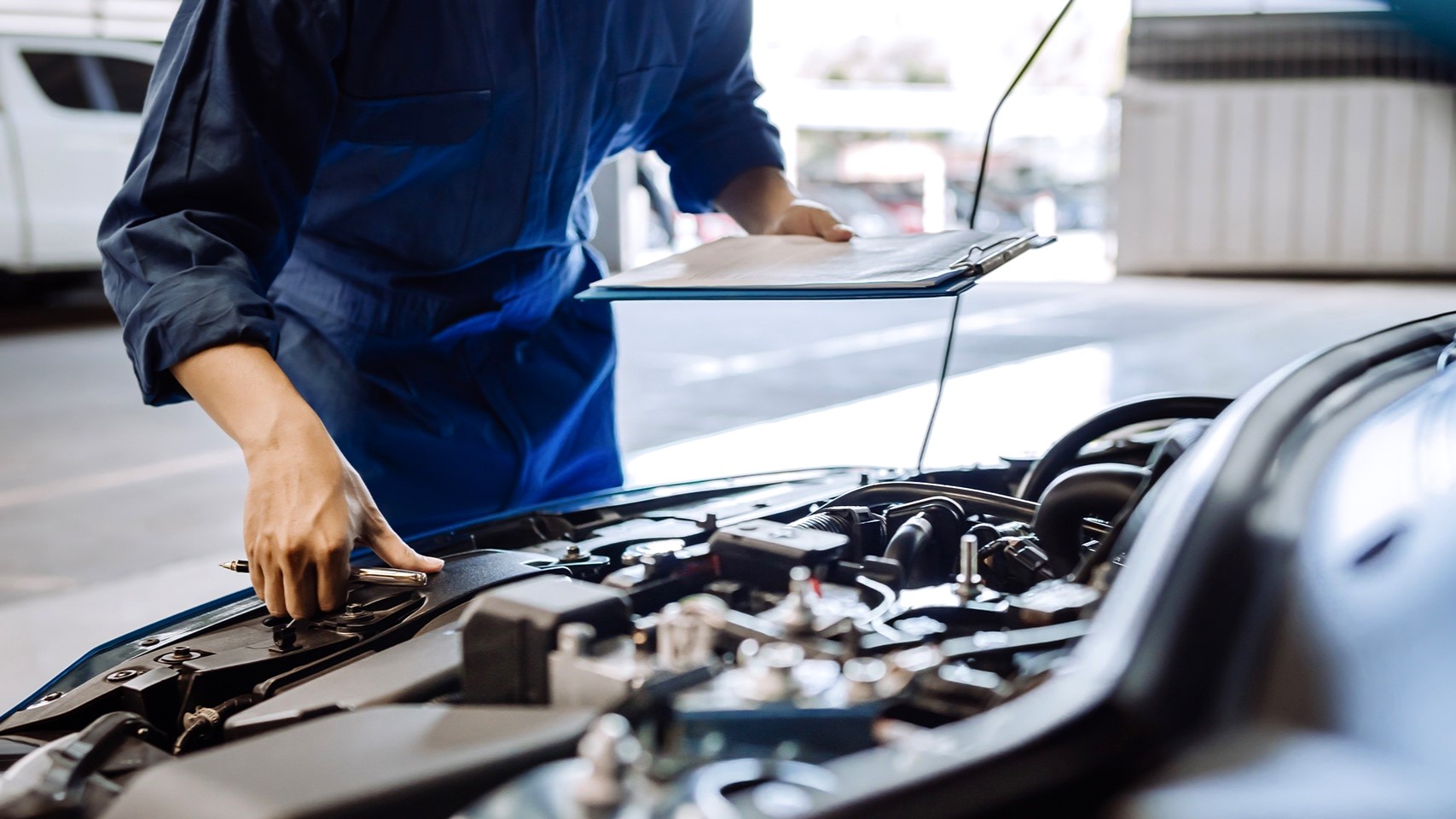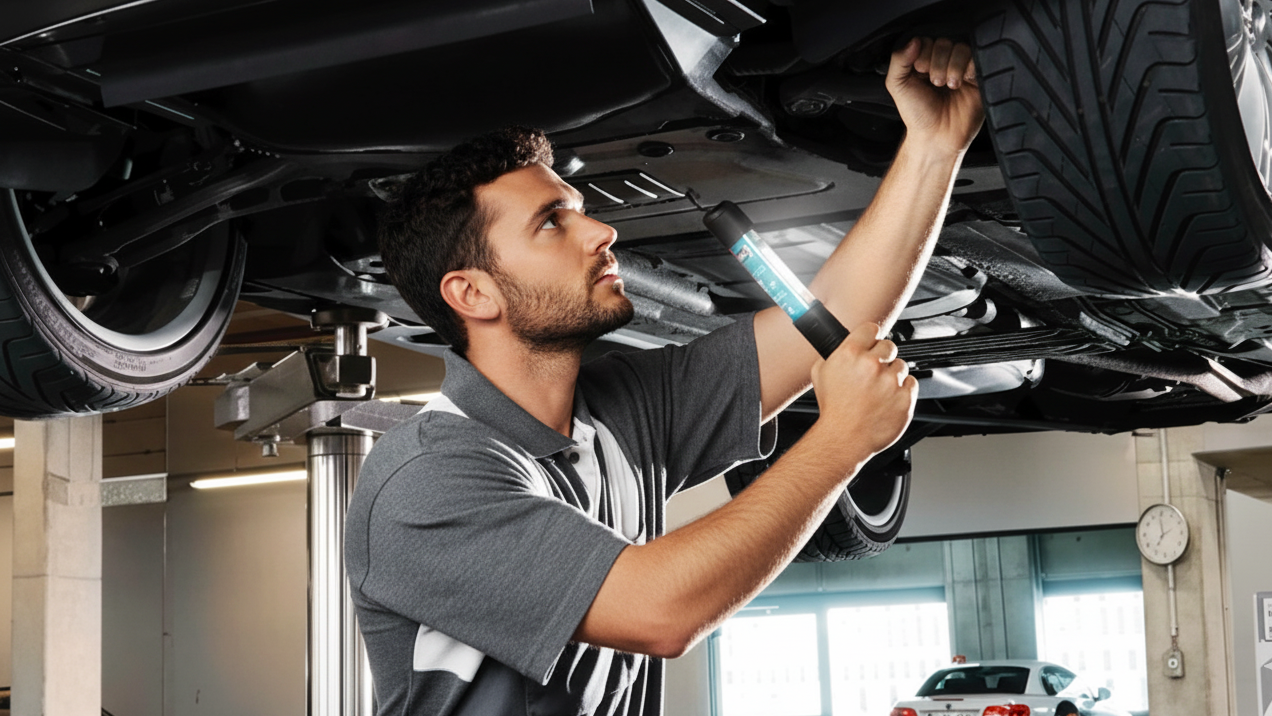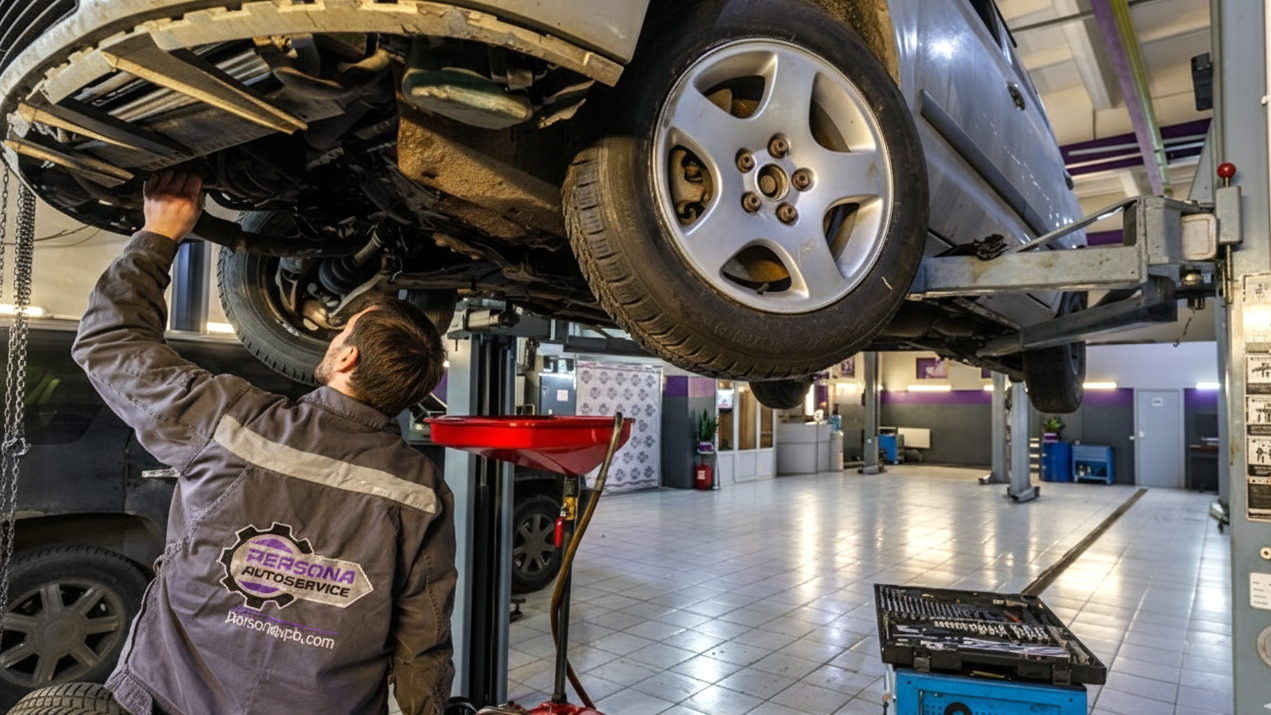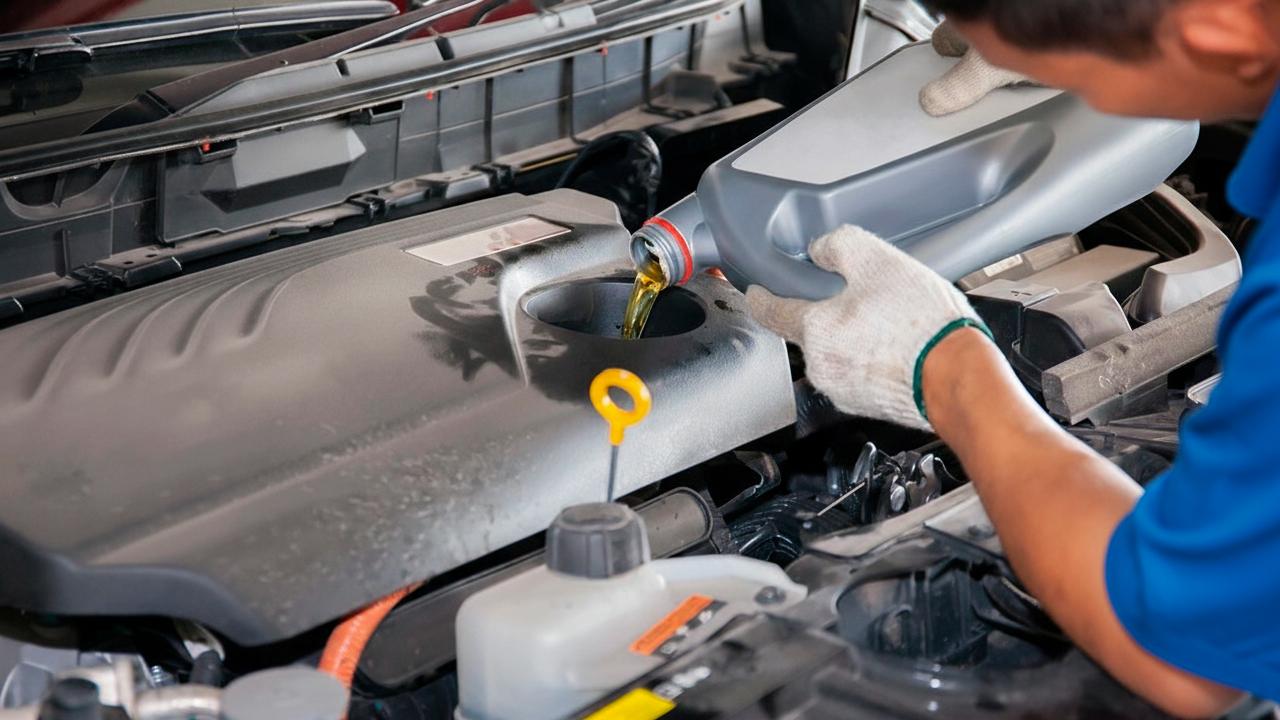How Often Should You Service Your Car?

Regular car servicing is key to ensuring your vehicle’s longevity and safe operation. Whether you're driving daily around the city or taking long road trips, it's essential to monitor the condition of your car to avoid unexpected breakdowns and costly repairs.
One of the most common questions among car owners is: "How often should you service your car?" The answer to this question depends on several factors, including the make of your car, its mileage, how it's used, and even the climate conditions. In this article, we’ll explore how often you should service your car, the signs that indicate when your car needs a service, and the benefits of regular car maintenance.
Recommended Service Intervals
Car manufacturers typically recommend specific service intervals to ensure your vehicle continues to perform optimally. Most cars need a service every 12,000 miles or once a year, whichever comes first. However, these intervals can vary depending on the car's make and model, and your driving habits.
- Standard Service Interval. Most manufacturers suggest servicing your car every 12,000 miles or once a year. This includes a comprehensive check of key components like the engine, brakes, and tires. For cars that are well-maintained and driven under normal conditions, this is generally sufficient.
- High Mileage Drivers. If you drive more than 2,000 miles per month, consider scheduling an interim service more frequently, typically every 6 months. High-mileage driving can place additional stress on your car’s components, so more frequent checks help identify and resolve potential issues before they become major problems.
- Short Journeys and Stop-and-Go Traffic. If your car is mainly used for short trips or stop-and-go driving, you might need to service it more often. Frequent short trips don’t allow the engine to fully warm up, which can lead to engine buildup and increased wear on components. In this case, you may need an interim service every 6 months, or at a mileage interval that’s shorter than the standard recommendations.
Types of Car Services

Car servicing can be broken down into different types of checks, each designed to keep your vehicle in top condition. Here’s a look at the main types of services:
1. Interim Service
- What it includes. An interim service is typically performed every 6 months or 6,000 miles. It’s a basic check-up focused on essential components, such as oil levels, tire pressure, lights, and brakes. It’s perfect for high-mileage drivers or those who need to ensure that their car remains roadworthy between full services.
- When to get it. Every 6 months or 6,000 miles, especially for cars driven frequently in heavy traffic or over long distances.
2. Full Service
- What it includes. A full service is a comprehensive check, typically performed every 12,000 miles or once a year. This service covers the essentials from an interim service but adds more detailed inspections, including replacing air filters, checking the timing belt, and inspecting exhaust systems, suspension, and steering.
- When to get it. Every year or every 12,000 miles, depending on the manufacturer’s recommendations. This service is necessary to keep your car running smoothly over the long term.
3. Major Service
- What it includes. A major service is the most thorough check-up you can get for your car. Typically done every 24 months or 24,000 miles, it involves a deeper inspection of all key components, including the engine, transmission, and brake systems. It may also involve replacing fluids like brake fluid, coolant, and transmission fluid.
- When to get it. Every two years or 24,000 miles. This service is designed to address any long-term wear and ensure that all the major systems are still in optimal working order.
4. Manufacturer-Specific Service
- What it includes. Some manufacturers recommend more specific maintenance schedules depending on the vehicle’s make and model. These schedules may include specialized services or additional checks that are unique to the vehicle’s design and performance needs.
- When to get it. Always follow the manufacturer’s service schedule as outlined in the owner’s manual to ensure the car’s warranty remains valid and the vehicle performs as intended
When Does Your Car Need a Service?

While regular servicing is essential, there are also signs that indicate when your car needs to be serviced sooner. Pay attention to the following warning signs:
- Warning Lights. Modern cars are equipped with various sensors that trigger warning lights when something isn’t right. If the check engine light comes on or any other dashboard indicator is lit, it’s important to take your car in for a service. These warning lights can indicate a range of issues, from something minor like a loose gas cap to more serious problems with the engine or brakes.
- Unusual Noises. Strange noises coming from your car can be a sign that something is wrong. Grinding, squeaking, or knocking sounds could be indicative of issues with the brake system, engine, or suspension. These sounds should not be ignored, as they may point to components that are wearing out and need attention.
- Poor Performance. If you notice a decrease in your car’s performance, it’s time for a service. This can include sluggish acceleration, difficulty starting, or reduced fuel efficiency. These symptoms may point to issues with the engine, fuel system, or exhaust system.
- Fluid Leaks. If you notice spots of oil, coolant, or brake fluid under your car, it’s a sign that something is leaking. Leaking fluids could indicate a problem with seals, gaskets, or hoses, and should be addressed immediately to avoid potential damage to other components.
- Vibration or Steering Issues. Unusual vibrations or issues with steering could be signs of worn-out tires, suspension problems, or alignment issues. If you experience any difficulty in handling or feel vibrations when driving, it’s important to get your car checked as soon as possible.
- Smoke or Odors. Smoke coming from the engine or exhaust could indicate overheating, engine trouble, or a fuel system issue. Similarly, unusual smells—such as a burning odor or sweet smell—can point to issues with the engine, brakes, or coolant system.
Benefits of Regular Car Servicing
Regular car servicing offers numerous advantages, not only for the health of your vehicle but also for your safety and financial well-being. Here are the key benefits of sticking to a regular maintenance schedule:
- Enhanced Safety. Regular servicing ensures that critical safety components, such as brakes, tires, and suspension, are in optimal working condition. By identifying and addressing potential issues early, you reduce the risk of breakdowns and accidents caused by faulty parts.
- Improved Performance. Keeping up with routine maintenance, such as oil changes, air filter replacements, and brake inspections, helps your car run smoothly and efficiently. A well-maintained vehicle will deliver better fuel efficiency, smoother acceleration, and a more comfortable ride overall.
- Cost Savings. While it may seem like an added expense, regular servicing can actually save you money in the long run. Early detection of small issues can prevent them from developing into costly repairs. For example, replacing a worn-out brake pad is far cheaper than dealing with the consequences of brake failure.
- Increased Resale Value. A car with a full service history can be more valuable when it’s time to sell or trade it in. Buyers are more likely to pay a premium for a car that has been well-maintained and comes with documented proof of regular servicing.
- Prolonged Vehicle Life. Regular servicing helps extend the life of your car. By maintaining essential systems and addressing wear and tear as it happens, you can ensure that your car stays in good condition for many years, allowing you to get the most out of your investment.
Cost of Car Servicing

Understanding the cost of car servicing can help you plan for regular maintenance and avoid surprises. The price of servicing can vary depending on several factors, including the type of service, the make and model of your car, and the region you are in. Here’s a breakdown of the typical costs for different types of car services:
1. Interim Service
- Cost. Typically, an interim service costs between £75 and £125. This basic service covers essential checks like oil levels, tire pressure, and fluid checks. It’s usually done every 6,000 miles or 6 months, depending on your driving habits.
- What’s Included. Checking oil, filters, brakes, tires, lights, and basic engine checks.
2. Full Service
- Cost. A full service generally costs between £150 and £250, depending on the complexity of the service and your vehicle. This is a more comprehensive service performed every 12,000 miles or once a year.
- What’s Included. A full check-up of all essential car components, including engine, brakes, suspension, air filters, spark plugs, and more.
3. Major Service
- Cost. A major service typically costs between £300 and £500, depending on the manufacturer and any additional parts or fluid replacements required. This service is performed every 24,000 miles or two years.
- What’s Included. In-depth inspection and replacement of fluids such as coolant, transmission fluid, brake fluid, and air conditioning refrigerant. Other components like timing belts or chains might also be inspected or replaced.
4. Factors Affecting Cost
- Car Make and Model. Premium brands or newer cars often require more expensive parts and labor, leading to higher servicing costs.
- Region. Service prices can vary based on location. Larger cities may have higher labor costs compared to rural areas.
- Service Package. Some service centers offer package deals or discounts for regular maintenance, which can reduce the overall cost of servicing.
DIY vs. Professional Servicing

While some basic maintenance tasks can be performed at home, professional servicing is often required for more complex checks and repairs. Here’s a breakdown of what you can do yourself and when you should consult a professional:
1. DIY Maintenance
What You Can Do Yourself:
- Oil Level Check. Regularly checking your oil level is an easy task and can help prevent engine damage.
- Changing Air Filters. This is a relatively simple job that can improve engine efficiency and fuel economy.
- Checking Tire Pressure. Ensuring your tires are properly inflated can improve safety, reduce fuel consumption, and prolong the life of your tires.
- Replacing Windshield Wipers. This can be done quickly, improving visibility and safety in rainy conditions.
- Fluid Levels. You can easily check and top up fluids such as coolant, brake fluid, and windshield washer fluid.
When DIY Isn’t Enough:
While performing regular checks and maintaining certain components is essential, some issues require professional expertise. It’s crucial to know when to take your car to a mechanic to prevent bigger problems down the line.
Professional Servicing
What Professionals Handle:
- Engine Diagnostics. Modern cars have complex computer systems that require professional tools for accurate diagnostics.
- Timing Belt Replacement. This is a critical service that requires technical expertise to ensure it’s done correctly.
- Brake System Inspection. While you can check the basics, a full brake inspection (pads, discs, fluid) is something best left to the professionals.
- Transmission and Engine Overhaul. Any issues related to the transmission or deep engine problems require professional intervention to avoid further damage.
- Electrical and Sensor Repairs. Professional servicing ensures that any electrical issues or sensor malfunctions are properly diagnosed and repaired.
The Benefits of Professional Servicing

- Expert Knowledge. Professional mechanics have the expertise and tools to diagnose issues accurately and efficiently.
- Warranty Protection. For newer cars, having a professional service ensures that the manufacturer’s warranty remains intact.
- Peace of Mind. With professional servicing, you know that your car has been thoroughly inspected and all potential issues have been addressed.
Conclusion
In conclusion, regular car servicing is essential to ensure that your vehicle runs smoothly, remains safe, and lasts longer. Whether it’s an interim service, full service, or major service, keeping up with the recommended maintenance intervals based on your car's make and model is crucial. Regular servicing not only helps detect minor issues before they turn into costly repairs, but it also improves fuel efficiency, enhances safety, and boosts the resale value of your vehicle.
Pay attention to the signs that indicate when your car needs a service, such as warning lights, unusual noises, poor performance, or fluid leaks. Staying proactive about servicing your car can save you money in the long run and ensure you get the most out of your vehicle.
Remember, whether you handle basic maintenance tasks yourself or take your car to a professional, the goal is the same: to keep your car in the best possible condition. Regular servicing is a simple yet effective way to maintain your car’s performance and ensure your safety on the road.


